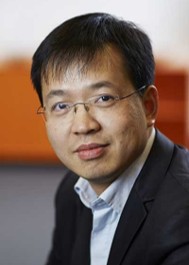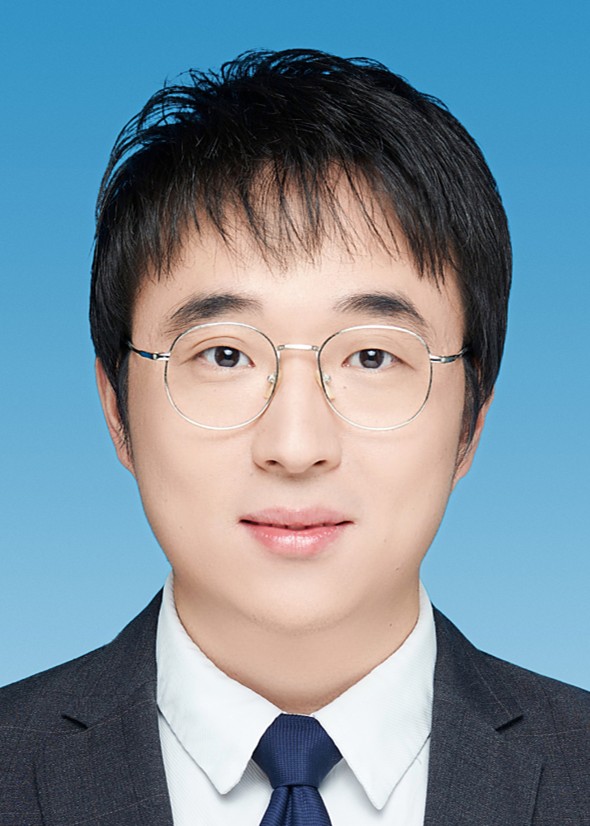 Invited Speaker
Invited Speaker

Ubiquitous Computing Power Networks
Yan Zhang
Department of Informatics,
University of Oslo, Norway.
Abstract:
Firstly, we introduce the concept and model of ubiquitous computing power networks. Then, new and unique scientific research problems in ubiquitous computing power networks are defined and solved, including the optimal allocation of computing resources, computing power collaboration and clustering mechanism, and distributed computing power sharing. Finally, we point out the future scenarios and open questions of ubiquitous computing power networks. Speaker: Yan Zhang, University of Oslo, Norway
Biography:
Yan Zhang is currently a Full Professor with the Department of Informatics, University of Oslo, Norway. His research interests include next-generation wireless networks leading to 6G, green and secure cyber-physical systems. Dr. Zhang is an Editor for several IEEE transactions/magazine. Since 2018, Prof. Zhang has been listed as a Highly Cited Researcher by Clarivate Analytics (i.e., Web of Science). He is Fellow of IEEE, Fellow of IET, elected member of Academia Europaea (MAE), elected member of the Royal Norwegian Society of Sciences and Letters (DKNVS), and elected member of Norwegian Academy of Technological Sciences (NTVA).

Side-Channel Attacks Based on
Multi-Loss Regularized Denoising AutoEncoder
Jian Shen
Zhejiang Sci-Tech University
Abstract:
Recently, researchers have leveraged the Denoising AutoEncoder (DAE) to reduce the noise in side-channel acquisitions (a.k.a. traces) that reduces the effectiveness of key recovery. Taking the L2 Loss (Mean Square Error, MSE) as the objective function of the DAE, it only aims to lessen the Euclidean Distance (ED) between the input and output, overlooking the Intra-Data Correlation (IDC) of the trace which includes the timing information. This paper proposes the Multi-Loss Regularized Denoising AutoEncoder (ML-DAE) framework to improve the generalization capability of the DAE. This framework consists of a shared DAE and Multiple Loss (ML) functions that aim to reduce the noise while preserving the excellent IDC of the output. During the training phase, to avoid issues of overfitting and a high number of training parameters, we pre-train the DAE using MSE and then initiate the ML-DAE which contains a multicore Partial Loss (PL) function with parameters transferred from the pre-trained DAE. During the testing phase, the outputs from the multicore PL are fused using an average pooling layer to yield the final predictions. The experiments on highly noisy datasets (XMEGA_ME, DPA_V2, and AES_GPU) and the masked dataset ASCAD demonstrate that ML-DAE achieves an SNR gain of at least four times, hence Deep-Learning based Side-Channel Attacks (DLSCAs) and Template Attacks (TA) with denoising pre-processing reduce of the number of traces needed to recover the key in the attack phase by more than 55%.
Biography:
Dr. Jian Shen (IET Fellow; IEEE Member) is working as the Dean and a professor in School of Information Science and Engineering (School of Cyber Science and Technology) at Zhejiang Sci-Tech University. He received the M.E. and Ph.D. degrees in computer science from Chosun University, South Korea, in 2009 and 2012, respectively. His research interests include cloud computing, data auditing and sharing, deep learning based side channel analysis, and computer networking etc. He has published more than 200 international journal and conference papers, such as IEEE TIFS, TDSC, TPDS, TCAD, ACM DAC etc., including more than 20 highly cited papers. He is the Highly Cited Researcher in the world (Clarivate), the Highly Cited Scholar in China (Elsevier) as well as the World's Top 2% Scientist.






